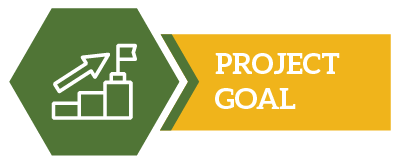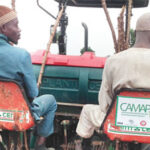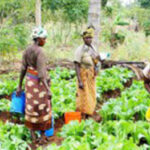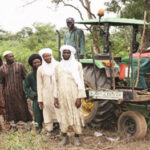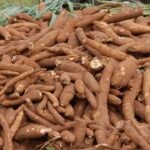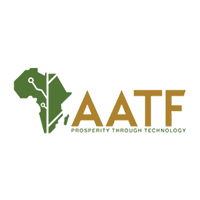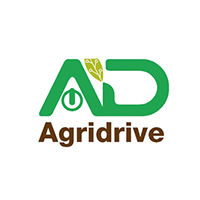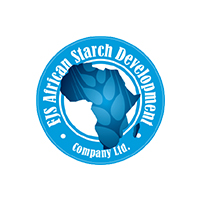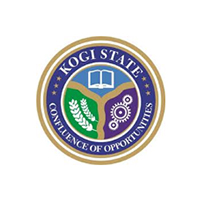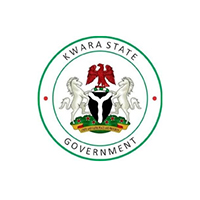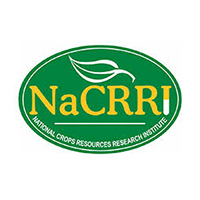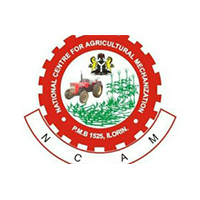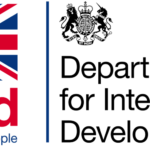CASSAVA MECHANISATION AND AGROPROCESSING PROJECT (CAMAP)
Modernising production practices
ABOUT THE PROJECT
Cassava is an economically important crop in Sub-Saharan Africa, yet farmers in the region achieve on average a yield of just 7-9 tonnes per hectare, around a third of that produced by their counterparts in Asia and Latin America. This is largely due to the high labour cost and inefficient production and processing practices.
The Cassava Mechanisation and Agro-processing Project (CAMAP) is working towards revitalizing the cassava industry through mechanized production and agro-processing along the cassava value chain. Currently, in four countries (Nigeria, Uganda, Zambia and Tanzania-(TAAT Cassava)), CAMAP also promotes good agronomic practices, encouraging farmers to use improved stem varieties, fertiliser and herbicides, and ensure timely farm operations. The objectives of the project are to:
- Increase cassava production through mechanisation across the value chain
- Add value to the cassava industry through value addition and creation of market linkages
- Create economically viable mechanisation agro service provision in the cassava sector
- Build capacity of local entrepreneurs to design prototypes machines, manufacture, maintain and repair the necessary equipment for cassava planting, harvesting and processing
- Integrate Digital Solutions and Farmer Aggregation for the Provision of Economically Sustainable Field Mechanization Services to Smallholder Cassava Farmers SSA
Since its launch in 2013, the project has increased the efficiency and timeliness of operations the key results being 200% increase in yields, 100% increase in incomes, improved quality of life and attraction of more women and youth into cassava farming as a business. Due to the success of CAMAP in Nigeria, Agridrive was formed to offer mechanization services as a business.
AATF PROJECTS
TELA Maize
TAAT Maize
TAAT Policy Enabler
Cowpea Project
MLN Project
OUR CONTRIBUTION

The project is enhancing food security, incomes and livelihoods for farmers, processors, and marketers in the cassava sector.

“Agriculture is our wisest pursuit because it will in the end contribute most to real wealth, good morals & happiness.” Thomas Jefferson.
PROJECT BENEFIT
FARMERS
Improve the quality of life of cassava farmers especially by women, by decreasing the amount of time required for farming activities.
BUSINESSES
In addition to strengthening market linkages and market capacities, the project has resulted in increased incomes from the sale of cassava products – from USD 150 – 600 per hectare to USD2,000 –3,500 per hectare.
SOCIETY
Improved food security for the population with increased yields per hectare from 5 tonnes to between 25 – 45 tonnes per hectare.
PROJECT HIGHLIGHTS
FIELD & IMPACT STORIES
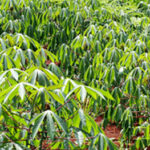
Cassava Mechanisation and Agro-processing Project inspires hope in Nigeria
Need more info on this?
Get in touch with us for more information.
Fill out the contact request form & we'll get back to you.
PROJECT PARTNERS
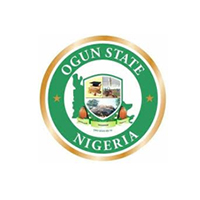
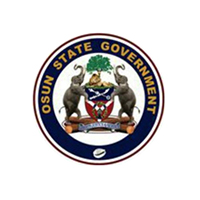
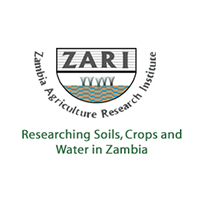
INFORMATION AND RESOURCES
Muinga G and Marechera G (2018) The effect of mechanisation on cassava production in Ogun, Osun, Kwara States of Nigeria. Food Chain 7:1, 1-14
Download Resource file
Marechera,G.T., Muinga G. (2017) Value chain approaches to mechanization in cassava cultivation and harvesting in Africa. In Hershey, C. H. (ed.), Achieving sustainable cultivation of cassava Volume 1: Cultivation techniques, Burleigh Dodds Science Publishing, Cambridge, UK (ISBN: 978 1 78676 000 5; www.bdspublishing.com)
Download Resource file
PROJECT MANAGEMENT

George Marechera
Agribusiness Development Manager
G.marechera@aatf-africa.org
PROJECT INVESTORS
UK Aid was one of the original funders of AATF and continues to provide core funding to support the AATF’s operations, including helping to build institutional capacity and strengthen corporate governance. It partially supports some projects, complementing project funding from other investors and wholly funds others. The larger part of CAMAP activities is supported with funding from the UK Aid.
CALL US TODAY
254-20 422 3700
NAIROBI, KENYA
Naivasha Rd
EMAIL
aatf@aatf-africa.org

